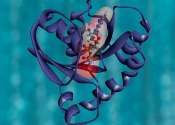No insect crisis in the Arctic—yet
Climate change is more pronounced in the Arctic than anywhere else on the planet, raising concerns about the ability of wildlife to cope with the new conditions. A new study shows that rare insects are declining, suggesting ...









